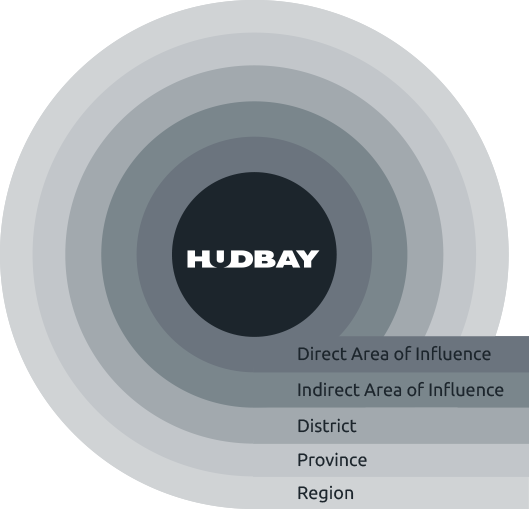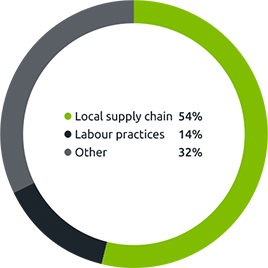 2014 Annual and CSR Report
2014 Annual and CSR Report

We understand that earning our social licence means effectively engaging with people so they understand how mining will change their community and how mining can strengthen it too. We must address their concerns about mining and competing land use priorities, and demonstrate how our operations can provide meaningful, long-term benefits. And, above all, we must earn and maintain respect, trust, understanding and collaboration. On this foundation, stable relationships are built.
Each business unit conducts its own stakeholder analysis and implements a stakeholder engagement plan to build relationships, understand local concerns, and respond to them. This practice is now documented in our newly adopted Stakeholder Engagement Standard. We also implemented a company-wide Community Response Standard (also known as a grievance process) to ensure complaints can be signaled and then appropriately documented, investigated and addressed.
In Manitoba, we engage regularly with the Flin Flon and Snow Lake communities. Recent discussions have focused on training and job opportunities for the people of northern Manitoba (see Local Hiring and Skills Development), the impact of the Lalor mine on the town of Snow Lake, and engagement with First Nations communities.
We place particular emphasis on engagement with First Nations communities locally. Through meetings, school presentations, mine tours, open houses and working together on joint initiatives (usually related to employment), we seek to improve understanding of one another and build constructive relationships. Hudbay’s full-time Aboriginal liaison officer coordinates our efforts and facilitates dialogue. In addition, two senior Hudbay representatives participate in the Minister’s Mining Advisory Council, which brings together First Nations leadership, industry representatives and the Government of Manitoba to ensure First Nations communities benefit from the development of new mines.
Hudbay is also a member of the Canadian Council for Aboriginal Business (CCAB) and participates in its Progressive Aboriginal Relations (PAR) program. Our objective is to progress from PAR’s “committed” category to the bronze certification level. Certification confirms that we have practices in place to be a good business partner and great place to work, and demonstrates our commitment to prosperity in Aboriginal communities.
In Peru, there are two communities within our direct area of influence – Uchucarco and Chilloroya. Both signed life of mine land use agreements with Hudbay in exchange for portions of their community-owned land. We maintain community relations offices in both communities and engage frequently with residents on a wide range of topics, most often related to fulfilling commitments under the agreements.
There are six communities within our indirect area of influence. By year-end 2014, we had signed co-operation agreements with four of the communities, in which we commit to working together on social development projects within a specified budget provided by Hudbay. We engage with different levels of district, provincial and regional governments, generally working to facilitate partnerships and agreements between governments and communities that promote social development.

In Arizona, we are planting roots in the community and building relationships with regulators as a Hudbay business unit. We believe that a robust permitting process contributes to the development of world-class mines and it is in that spirit that we are engaging in the regulatory process to secure the final permits needed to advance the Rosemont project.

Local supply chain – mainly related to vehicle maintenance expenses and payments for services, and food (food quality from local providers and pending payments by third-party contractors)
Labour practices – mainly related to lack of payment for non-worked days (certain employees are allowed days off to attend community meetings)
Other – payments for use of land, procedures, accomplishment of commitments, environmental questions, resettlement, etc.